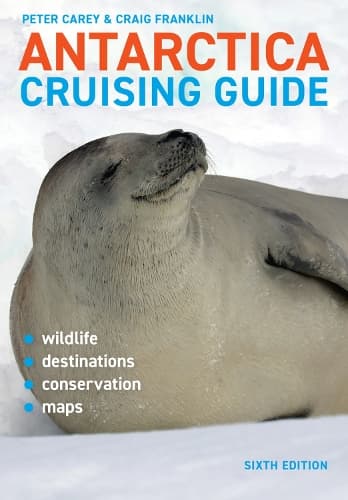Craig FranklinAuthor
Craig Franklin is a professor in zoology in the School of Biological Sciences , The University of Queensland, Australia. He has made more than 30 trips to Antarctica, including ten research expeditions as part of the New Zealand Antarctic Programme. He has published over 260 scientific works, including papers in journals Nature, Science and Nature Climate Change. His research focuses on how animals such as fish, frogs and crocodiles can survive and function in extreme and hostile environments. Peter Carey is a zoologist and educational tourism consultant who has worked in Antarctica and the Southern Ocean since 1983. He has conducted research as a scientist with the New Zealand Antarctic Programme and the Australian Antarctic Program, and worked as an expedition leader and lecturer on many Antarctic cruise ships. Peter is the director of the SubAntarctic Foundation for Ecosystems Research (www.subantarctic.com), a non-profit conservation organisation that is improving wildlife habitat in the Falkland Islands, and a Global Fellow of the Polar Institute of the Wilson Center. Craig Franklin is a professor in zoology in the School of Biological Sciences , The University of Queensland, Australia. He has made more than 30 trips to Antarctica, including ten research expeditions as part of the New Zealand Antarctic Programme. He has published over 260 scientific works, including papers in journals Nature, Science and Nature Climate Change. His research focuses on how animals such as fish, frogs and crocodiles can survive and function in extreme and hostile environments. Internationally he is recognised as a leading proponent of the emerging field of conservation physiology, and several of his research projects assess the impact of human-induced environmental change on animals. His Antarctic research has looked at the impact of temperature increases on the physiology and survival of fish. He is a strong advocate of wildlife conservation and spends his annual holidays lecturing on cruise boats about the Antarctic ecosystem and its spectacular wildlife.
